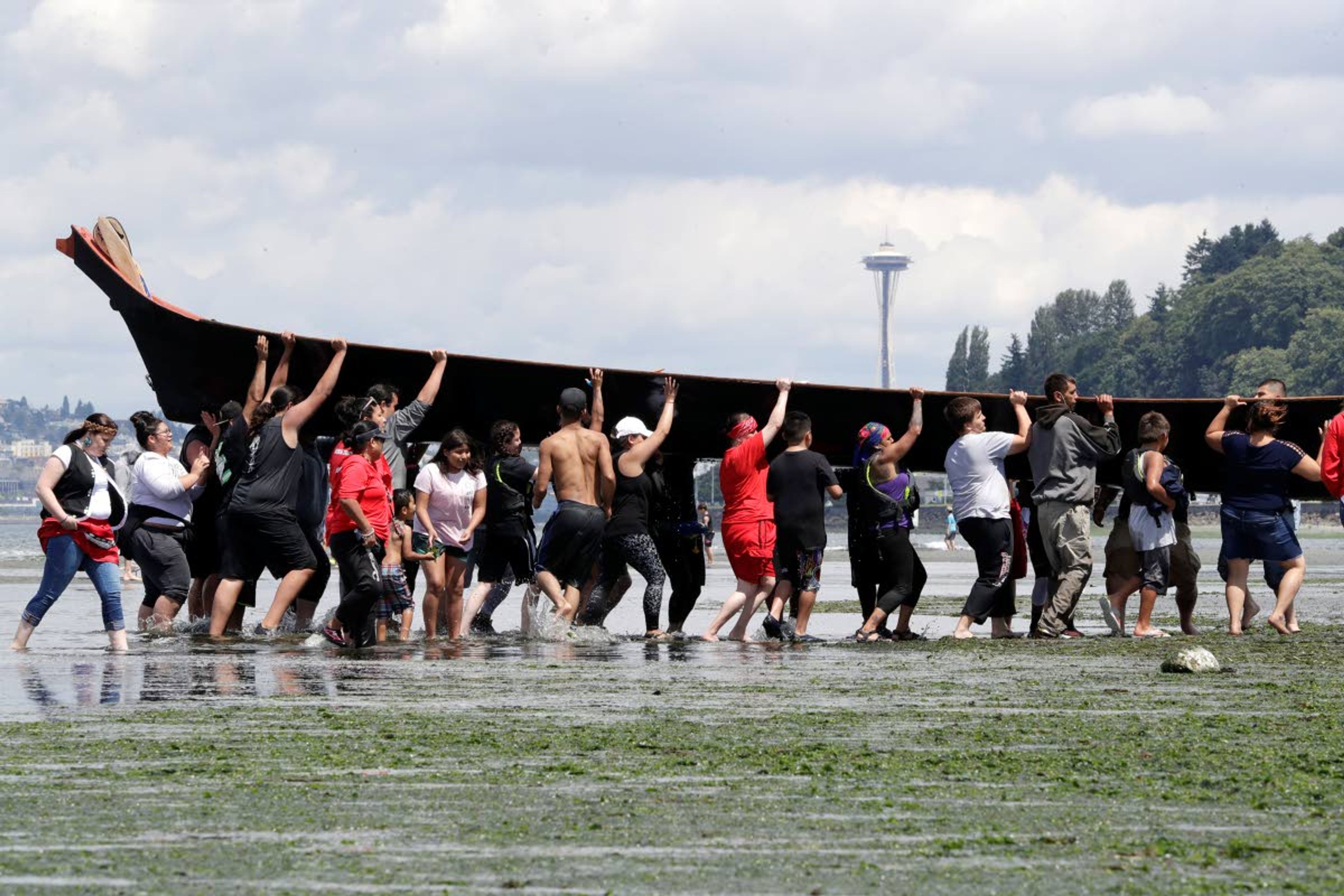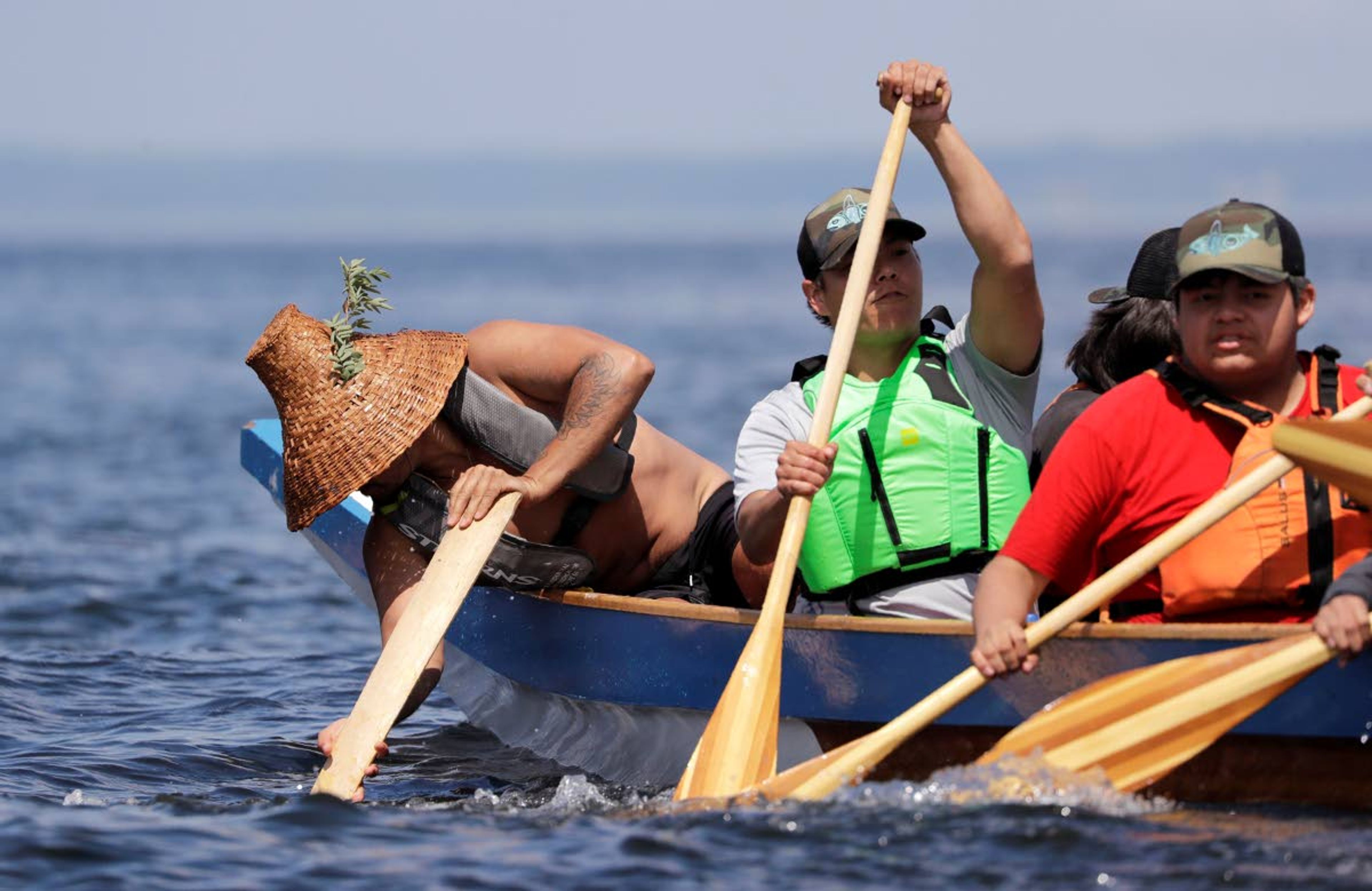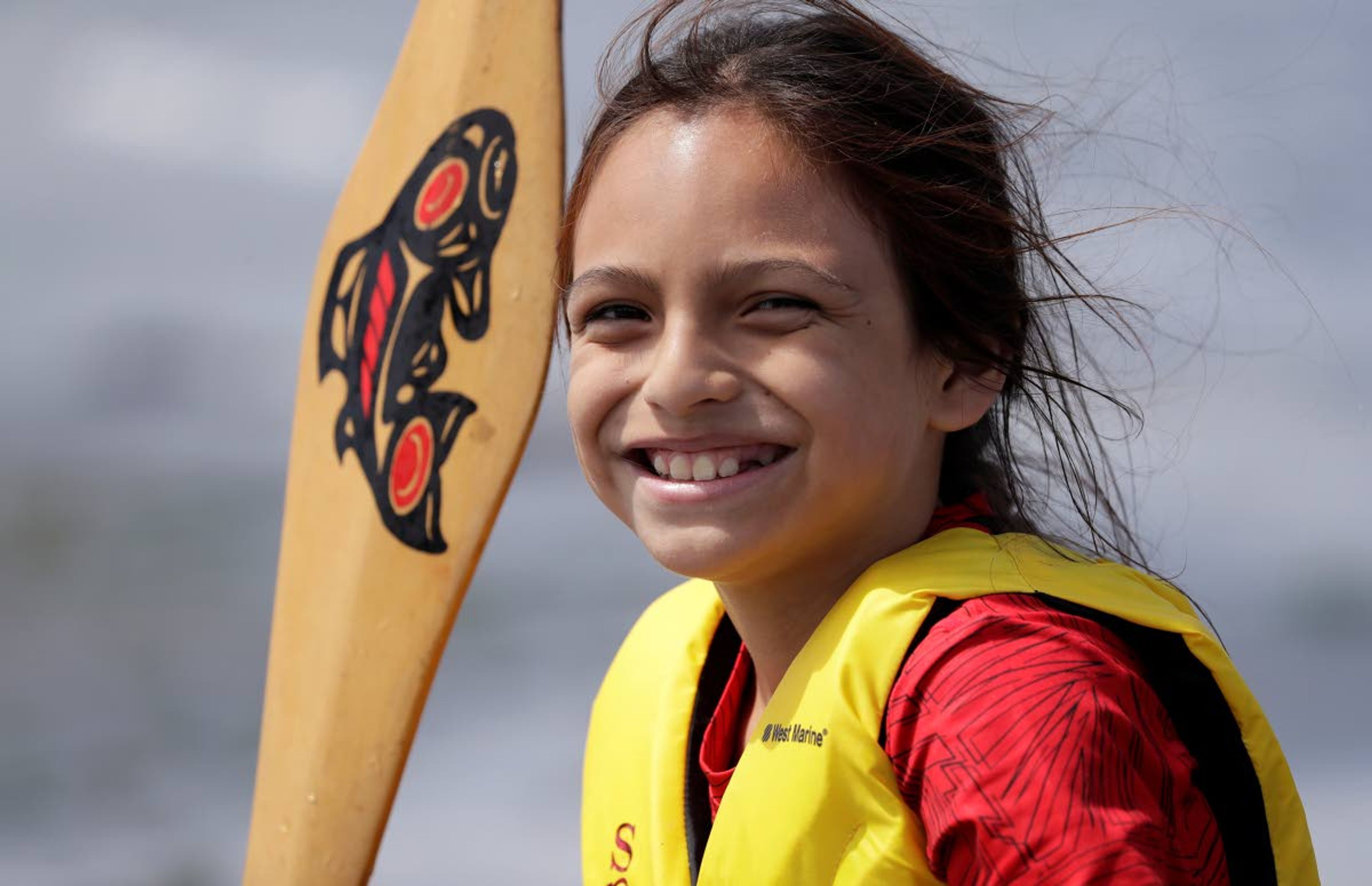‘The canoes are coming’
Northwest tribes land at Alki during annual canoe trip
The water was nearly calm as the canoes rounded Alki Point and came into view.
“The canoes are coming!” a young girl cried from the crowd of onlookers. “They’re right there!”
The 20-odd canoes approached Alki Beach just before noon Thursday as part of the “Paddle to Lummi” — or Sqweshenet Tse Schelangen (“honoring our way of life”) — a journey through the Salish Sea toward the Lummi Nation, this year’s host. During the annual Tribal Canoe Journey, tribes and nations from throughout the Pacific Northwest join up with one another on the way toward Lummi, starting from different points but picking up new canoes along the way.
The journey is “about reclaiming some of our traditional practices, not only from the standpoint of physically being on the water with our traditional transport, but … the spiritual and cultural practices that are associated with doing so,” said Donny Stevenson, vice chairman of the Muckleshoot Indian Tribe. “We’re all coastal peoples; that … connection with the waterways is a really, really, really strong part of our identity, and it’s at the core of who we are as indigenous people.”
The Lummi Nation said it expects 10,000 people and more than 100 canoes to ultimately arrive on its shores, at which point the participants will share in potlatch, with traditional song, dance and testimonies. The Muckleshoot Tribe and those pulling with them expect to arrive Wednesday.
As the canoes arrive at the shore of a given night’s host, they will circle, pullers will ask permission to land and then the canoes will be carried onto the beach by hand, said Rachel Cushman, a councilwoman of the Chinook Indian Nation. The next morning, she added, they’ll ask permission to leave before heading off on the next leg of the journey.
Once the canoes were on shore at Alki, pullers stuck around the beach or boarded buses that would take them back to the Muckleshoot Reservation for the night. There, Stevenson said, they would recognize both what unites them in shared coastal culture as well as what makes them unique as individual communities.
“We have our own traditional stories, we have our own traditional songs, we have our own traditional dances,” Stevenson said. “And really, what you do during the course of the time that you come together off of the water is, you take the opportunity to share those things with your brother and sister tribal nations.”
Thursday night would be more subdued than usual because of the recent passing of a Muckleshoot elder, Stevenson noted, and wouldn’t include the formal drumming or singing of a typical night during the journey. But cultural exchange would remain central to the experience nonetheless.
“It bridges our traditions and teachings and history with who we are today, and it does so in a way that ensures that we have guaranteed protection of that identity into the future,” Stevenson said.
That guarantee hasn’t always been the case for the indigenous people of the Pacific Northwest, noted Cushman.
“For thousands of years we would visit one another for marriage, for gathering, for trade, for healing ceremony, and until the Native American Religious Freedom Act passed [in 1978], a lot of this way of being was prohibited by the U.S. government,” Cushman said. “And so in the ’80s there was a resurgence … and this has been carrying forward since.”
(TNS)











